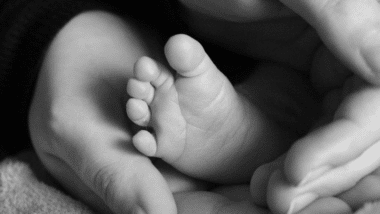Abortion activists are calling on the Government to scrap the ten-week rule on DIY abortions in England and Wales.
Citing research from Sweden on a vastly different process, the Royal College of Obstetricians and Gynaecologists (RCOG) and the British Pregnancy Advisory Service (BPAS) claimed home abortions are “safe” after twelve weeks’ gestation, and that “unnecessary restrictions” should be lifted.
According to latest figures, there were 252,122 abortions in England and Wales in 2022, of which 61 per cent were chemically induced at home during the first ten weeks of pregnancy.
Pro-abortion research
Chemically induced abortions prior to ten weeks gestation involve taking two pills. The first, mifepristone, prevents the baby’s development, while the second, misoprostol, induces a miscarriage. After twelve weeks, further doses of misoprostol may be required.
Under researcher led by Kristina Gemzell Danielsson, who is based at the pro-abortion Karolinska Institute in Solna, all the women in the Swedish study took mifepristone at an outpatient clinic before going home. Half then took misoprostol at home before going to hospital, while the remainder took misoprostol at hospital.
Researchers found that 71 per cent of women assigned to take the second pill at home during the second trimester of pregnancy completed the abortion without an overnight hospital stay, compared to 46 per cent of those who took the pill in hospital.
It reported that 22 per cent of the 444 participants in the trial “had an adverse event” after taking the pills, including haemorrhaging and retained placenta.
Pushing for change
Endorsing the study’s findings, Dr Patricia Lohr, Director of Research and Innovation at BPAS, lamented that current abortion laws in England and Wales “block medical innovation and restrict women’s choices by preventing the use of abortion pills outside clinics after ten weeks”.
She added: “The law must change, and it must change urgently.”
Claiming that abortion “is an essential form of healthcare”, RCOG President Dr Ranee Thakar also welcomed the study and repeated the association’s call for the Government to remove existing protections for the unborn.
DIY abortions
Prior to the coronavirus pandemic, women seeking an early abortion were required to attend a face-to-face consultation with a medical professional before they could be given abortion pills, at least one of which was then taken in a supervised medical environment.
However, pro-abortion activists were successful in a campaign to remove this requirement during lockdown, meaning women less than ten weeks pregnant can now procure the pills after a phone or video consultation, with the pills then posted to them. Unlike the Swedish study, there need be no medical supervision at all.
Earlier this year, a poll by Whitestone Insight revealed that 71 per cent of women support a return to in-person appointments, while only 9 per cent back the current rules.
Mythbuster: DIY abortion pills are neither simple nor safe
Woman in Limerick suffers ‘life-threatening’ complication after taking abortion pills


